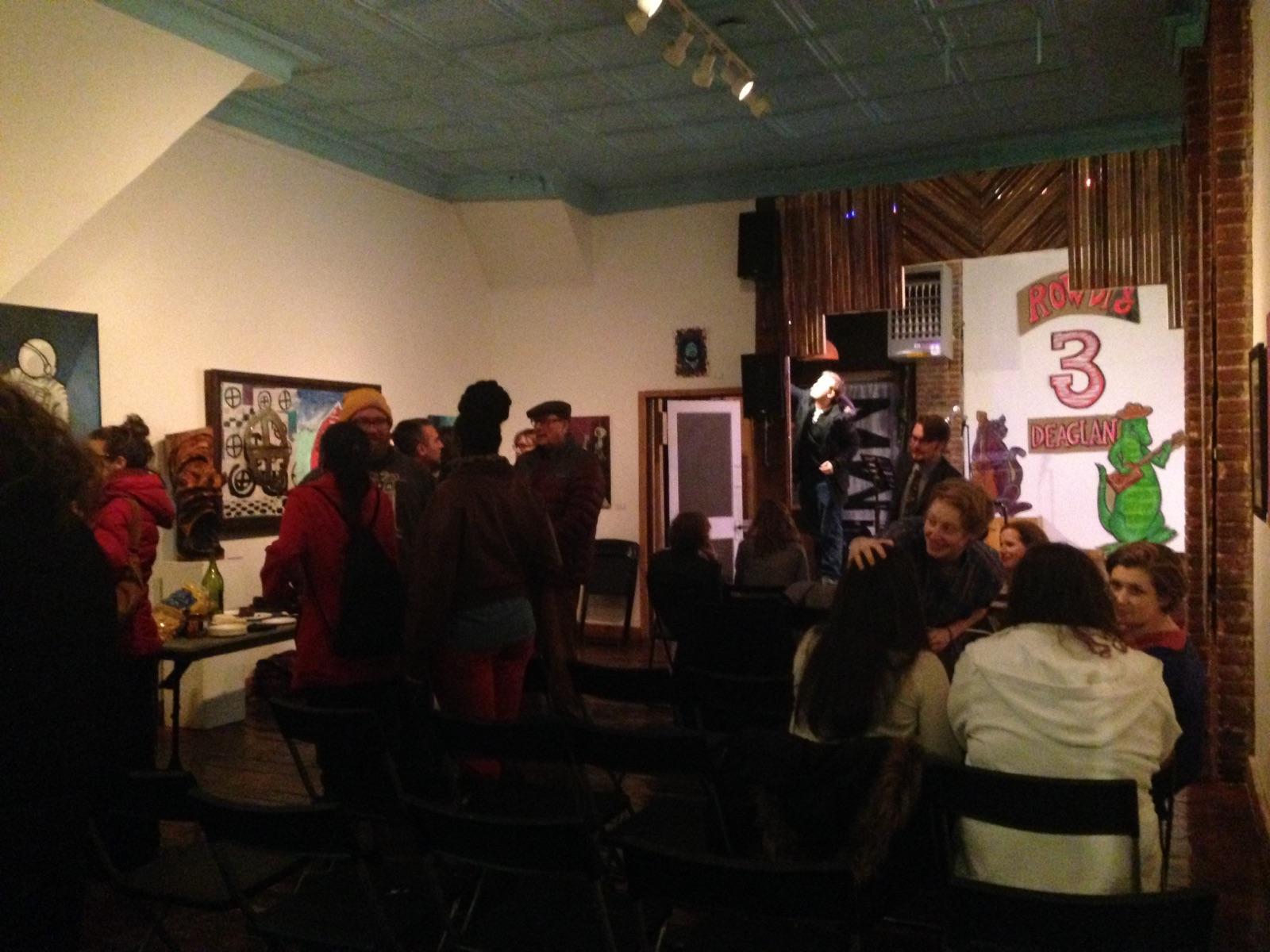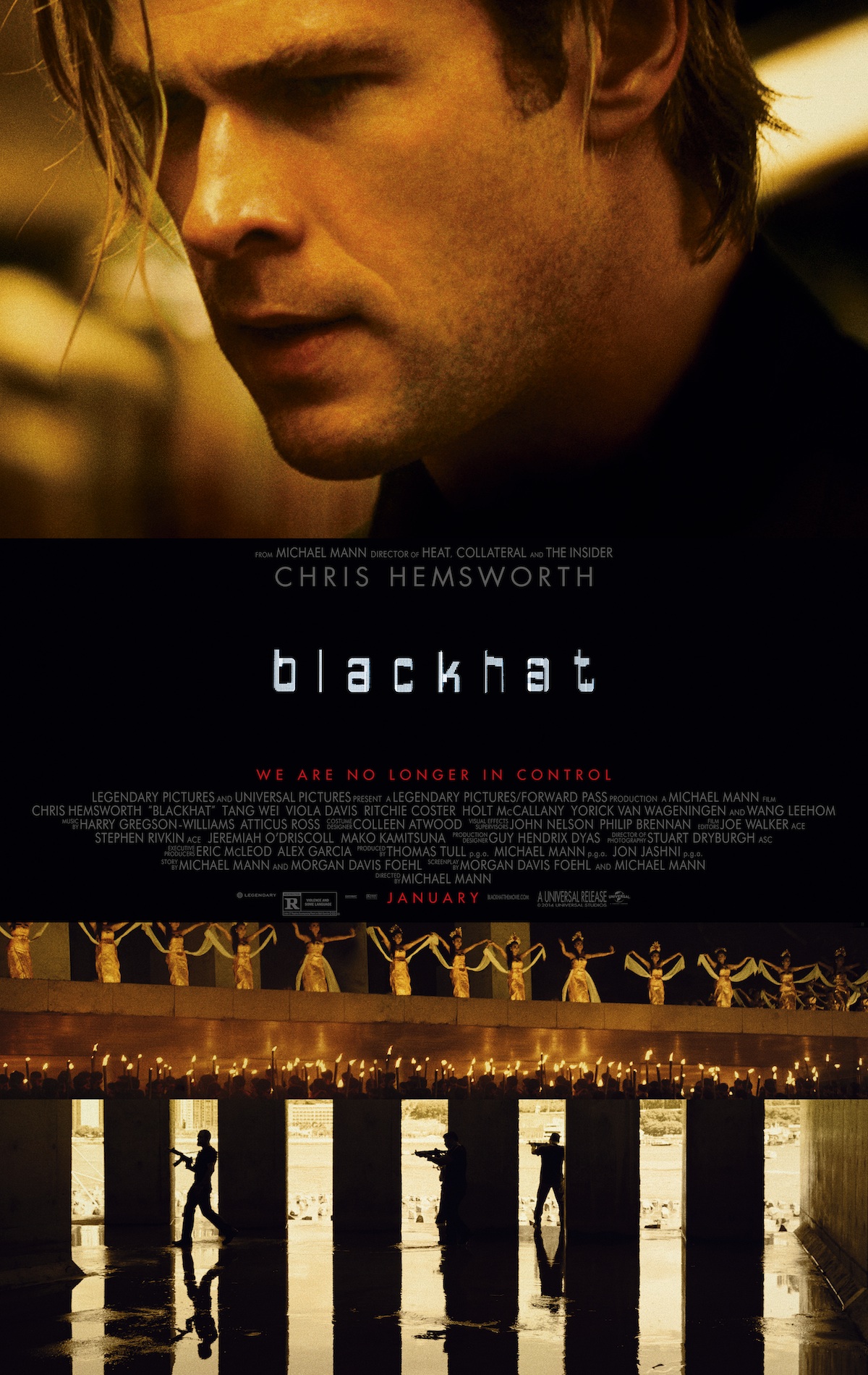“There is no greater agony than bearing an untold story inside you,” Maya Angelou once wrote in her novel, “I Know Why the Caged Bird Sings.”
This was undoubtedly the case for the writer’s attending the Chatham MFA Creative Writing Program’s reading series, Word Circus, at the Most Wanted Fine Art Gallery on Friday, January 23.
The gallery, set up with several rows of chairs facing a small stage adorned with a music stand and a single microphone, seemed immediately to be the perfect venue for the event.
With its mixed media pop-art, soft light, and quasi-industrial grunge inspired décor, it set the tone for the raw pieces of prose and poetry that were to be read throughout the evening.
Though it seemed like the kind of place one might find a group of stereotypical starving artists, it was unlikely that any of the artists in attendance were starving, given the large assortment of cheese, chips, crackers, desserts, wine, and of course–because what small scale artsy hipster gathering would be complete without it–a case of Pabst Blue Ribbon.
As the lights began to dim around 7:30, and the people who were casually chatting around the room began to take their seats, it became clear that, though the space was small and the weather outside less than pleasant, the event had managed to draw a nearly full house
After everyone was seated, Alex Friedman, the host for the evening, took the stage amidst a round of applause.
“You have to woo for everyone if you’re going to woo,” he joked before welcoming everyone, specifically thanking the two professors in attendance–Heather McNaugher and Marc Nieson–for coming.
Before bringing the four graduate student featured readers to the stage, Friedman explained that, in preparation for the event, he had asked all of the readers some questions about themselves.
The questions, full of witty and sarcastic humor, included things like which artist they would want to paint their portraits, and why they chose to pursue a career in, “making things up in an obsolete medium.”
The first featured reader, Michelle Sinclair, who would want to be painted by either Frida Kahlo or Andy Warhol and who writes because, “everyone has their flaws,” began the evening with her piece of prose entitled, “Knit for Naught.”
As she stood under the blue tin ceiling of the gallery, Sinclair wove–or knit, as the case may be–an engaging storyline, making the audience feel a full spectrum of emotions.
Her soft voice rose and fell as she took the audience through flashbacks about the main character, Shirley, an avid knitter who, towards the end of the piece, the audience discovers is still heartbroken over the loss of a child.
Sinclair was followed by Taylor Smith, who said that he would want his portrait done by Stanley Kubrick in the style of “2001: A Space Odyssey” and who, according to Friedman, “was voted Most Likely to be Merlin or Gandalf” in high school.
Smith began with a somber poem about heartbreak and change, his voice resonating through the room as he read.
The audience responded well, laughing enthusiastically when he got to the first line of his final poem, which read, “In the winter time, Buddha is hiding in the bushes, spying on the neighbors again.”
Leila Zonouzi, the third featured reader for the evening, indicated that she would want her portrait done by the comedian Louis C.K.
Upon taking the stage she explained that she would be reading a selection from of larger piece on which she is currently working.
The tone of her piece, which was about the events of a woman’s day, was somber, and her attention to imagery and detail seemed to give the piece a life of its own.
In response to the question of why she chose to be a writer, the final featured reader, Alison Taverna, gave a comical response about how her dream of being a professional unicyclist didn’t pan out.
As soon as she got on the stage she began joking with people in the audience, saying, after one of her poems, that she, “really wanted to drop the mic on that one.”
The close knit group of people in attendance made it feel more like a family gathering than a public reading, which had the potential to make outsiders feel alienated–except for the fact that the welcoming atmosphere made that outcome impossible.
Towards the end of her set, Taverna read a poem inspired by Justin Bieber’s new haircut, and in it she said, “It’s okay, sometimes, to be mistaken for who you are.”
This theme of being who you are was felt throughout the event in everything from the featured readers portion to the open mic portion–during which six people went on stage to share their work–and even during the breaks in between when everyone gathered together to chat and enjoy each other’s company.
Word Circus is a monthly event and information about the next one, occurring Friday, February 20, can be found on MyChatham.





